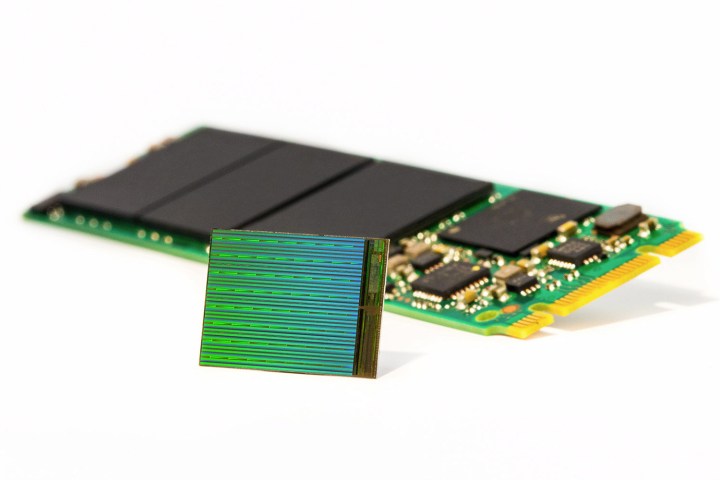
Micron has announced it’s the first manufacture to debut areal densities for 3D NAND stacks that are 2.77 terabits per square inch (Tbpsi). That is a huge step beyond the current hard drive density of just 1.3Tbpsi.
This is only in the lab right now, which means that it will take a little bit of time before this advance reaches consumer products. As a point of reference, hard drive technology developments take, on average, three years to reach end users.
When it does reach us, though, that sort of memory density could lead to some monstrous 3.5 terabyte SSDs. In the long term, we could see SSDs with capacities up to 15 terabytes, far in excess of today’s consumer hard drives. It’s likely that within a few years SSDs will come in much larger capacity options than HDDs, as well as being far faster.
This development in itself is a surprise even for those in the industry. It was previously predicted that at some point in 2016 we would see 3D NAND reach a density of 1.59Tbpsi. Micron’s development is well ahead of the expected curve.
Of course, pricing will still be an issue. While SSDs have come down in price by huge margins, they are still quite a bit more expensive per gigabyte than HDDs, and with the costs for setting up a 3D NAND manufacturing plant still far higher than more tried-and-true HDD fabrication, it’s unlikely that we’ll see a huge and affordable SSD anytime soon.




